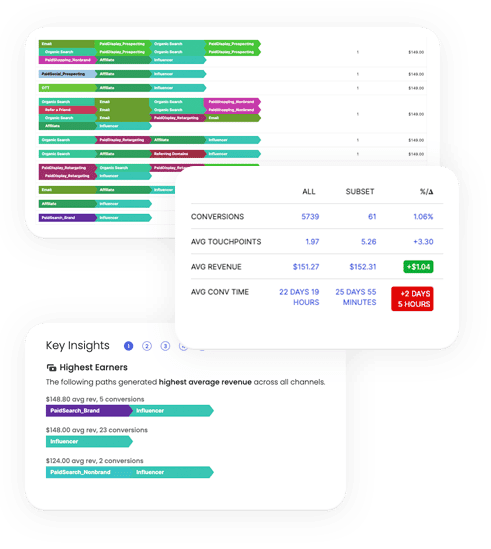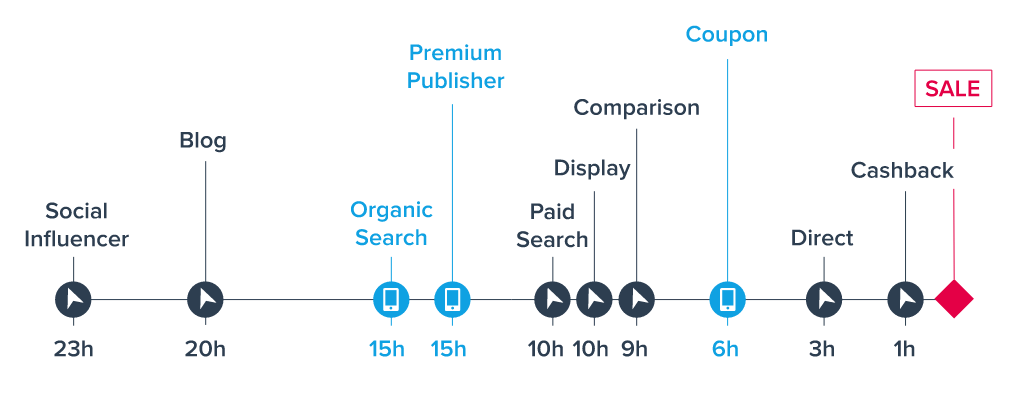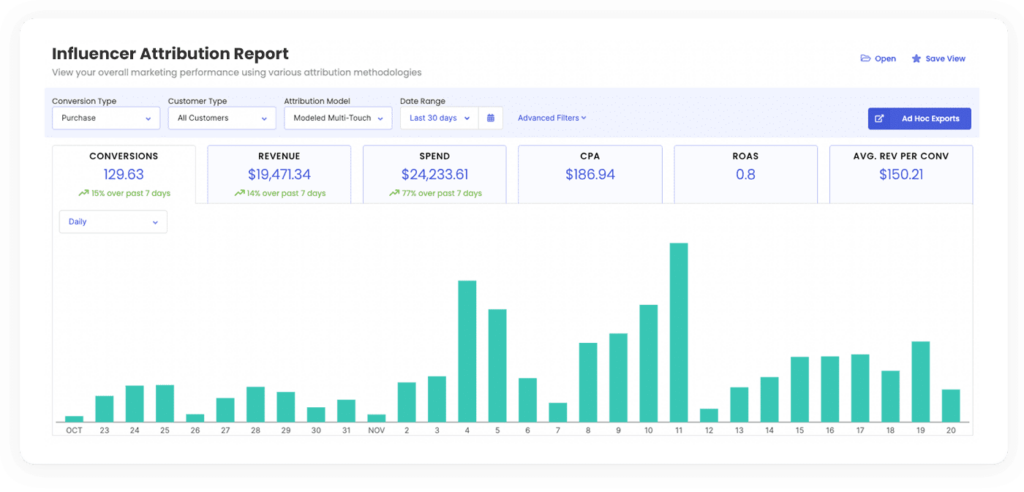Influencer marketing is a multi-channel way for brands to drive brand awareness, promote their products, and increase sales. However, one of the biggest challenges ecommerce influencer marketers face is measuring its effectiveness and attributing sales to specific creators. Accurate attribution is crucial in determining the return on investment (ROI) of an influencer marketing campaign and optimizing future campaigns.
Key takeaways from this blog
- Attribution is the process of assigning credit to a marketing channel or touchpoint for a conversion.
- Accurate attribution is crucial for ecommerce brands to measure the effectiveness of their influencer campaigns, optimize their strategies, and allocate their budgets efficiently.
- Brands can use various methods for measuring attribution, such as promo codes, affiliate marketing, UTM parameters, and multi-touch attribution.
What is attribution and how effective is it in ecommerce influencer marketing?
Attribution is the process of assigning credit to a marketing channel or touchpoint for a conversion, such as a sale or a lead. In the realm of ecommerce creator partnerships, attribution involves determining which creators(s) contributed to a sale or a group of sales, and compensating them for their efforts.
Without proper attribution, marketers can’t make data-driven decisions to optimize future campaigns.

Why attribution works for influencer marketing
Accurate attribution is an indispensable tool for ecommerce brands to measure the effectiveness of influencer campaigns, optimize their strategies, and allocate their budgets efficiently. It also drives sustainable growth by:
Accurately measure return on investment (ROI): ROI measures the profit generated by a specific creator’s action relative to the marketing investment. When you have a robust attribution solution that tracks influencer marketing performance against spend, you can more effectively determine if creators are driving the sales needed to justify the investment.
Optimize campaigns to drive better performance: Attribution allows brands to optimize their influencer marketing campaigns by identifying the most effective creators and adjusting their strategies accordingly. For example, if a creator working on a cost per action (CPA) basis is driving a significant amount of conversions, an ecommerce brand might consider incorporating a performance bonus into their contract to motivate them to drive even more sales.
Efficiently allocate budget: When you can measure and identify the impact of top-performing creators, you can be more intentional and data-driven when selecting where to deploy spend. For instance– let’s say you have $100,000 to run an influencer campaign on Instagram. After analyzing initial attribution data, you uncover that one particular creator is generating the highest conversion rates. You might allocate $15,000 of your budget to this creator, knowing that it will likely generate the highest return on investment.

3 simple tactics to measure attribution for your creator campaigns
Your business is unique, so choosing the right methods for measuring attribution in ecommerce influencer marketing matters. Here are some of the most common ways to measure:
Promo codes: Promo codes are unique codes that are assigned to individual creators. When a customer uses the code at checkout, the sale is attributed to the creator. Promo codes allow brands to track sales generated by individual creators and calculate their ROI.
Unique tracking links: Universal transverse Mercator (UTM) parameters are tags that are added to URLs to track the source of a click. By adding UTM parameters to unique tracking links, brands can track sales generated by individual creators and calculate their ROI.
Multi-touch attribution: Multi-touch attribution involves assigning credit to multiple touchpoints along the customer journey. This allows brands to understand the role that creators play in the customer journey and the overall effectiveness of their influencer marketing campaigns.

The Rockerbox difference
Rockerbox is a marketing attribution and analytics platform that provides multi-touch attribution solutions for B2C brands.
Rockerbox’s platform provides real-time data and insights, allowing brands to track the performance of their influencer marketing campaigns and make data-driven decisions.
Find out how to drive performance with influencer marketing in this guide.




